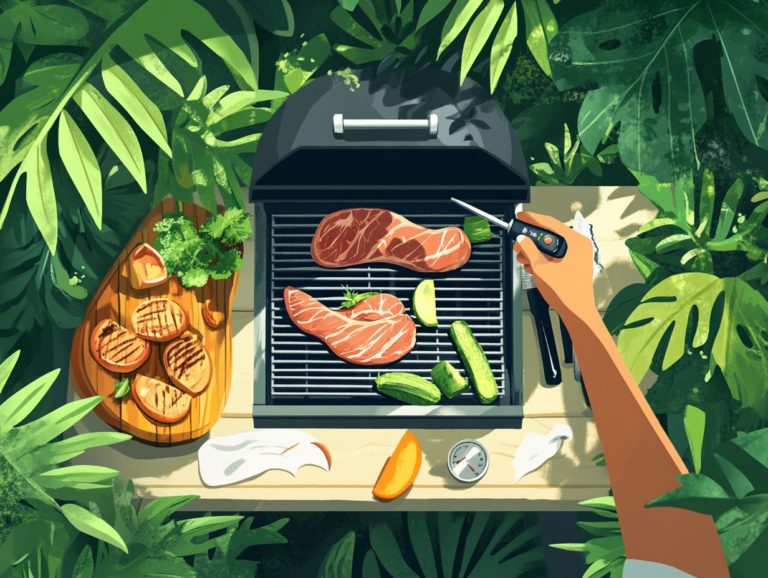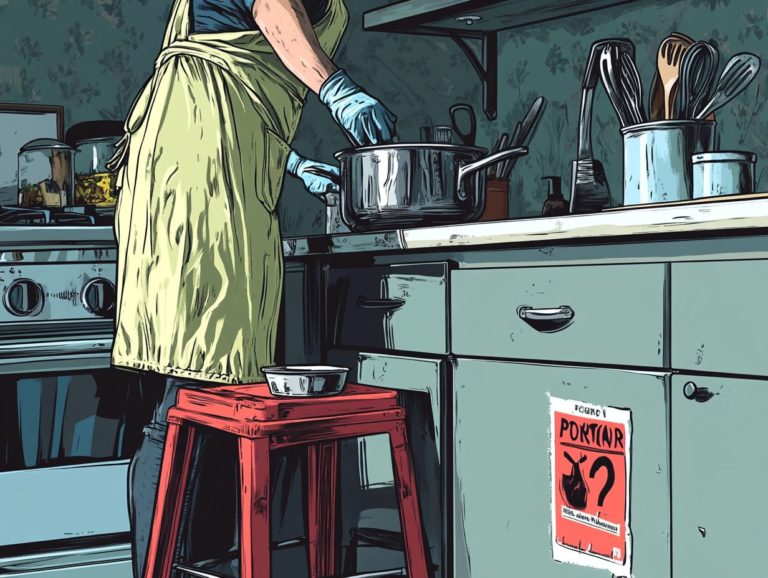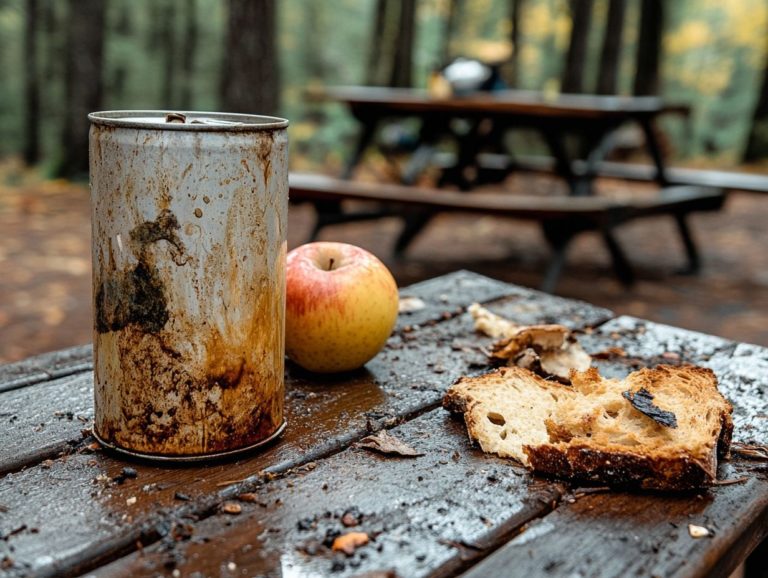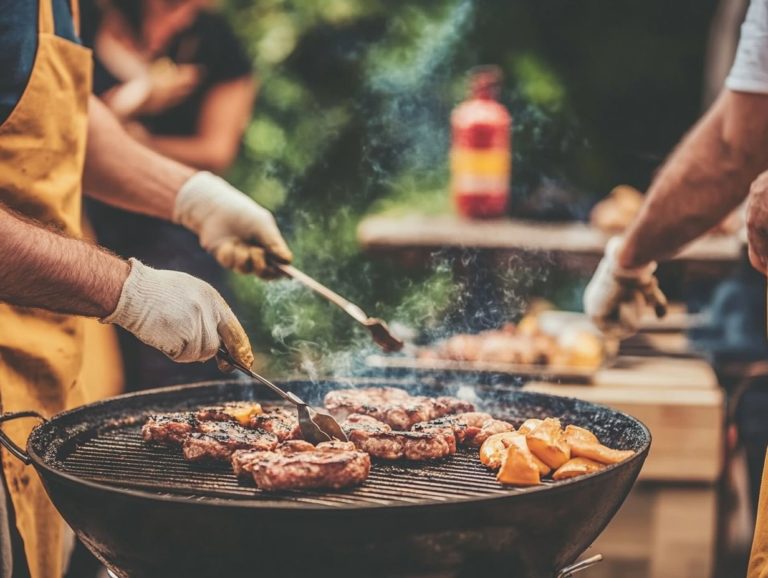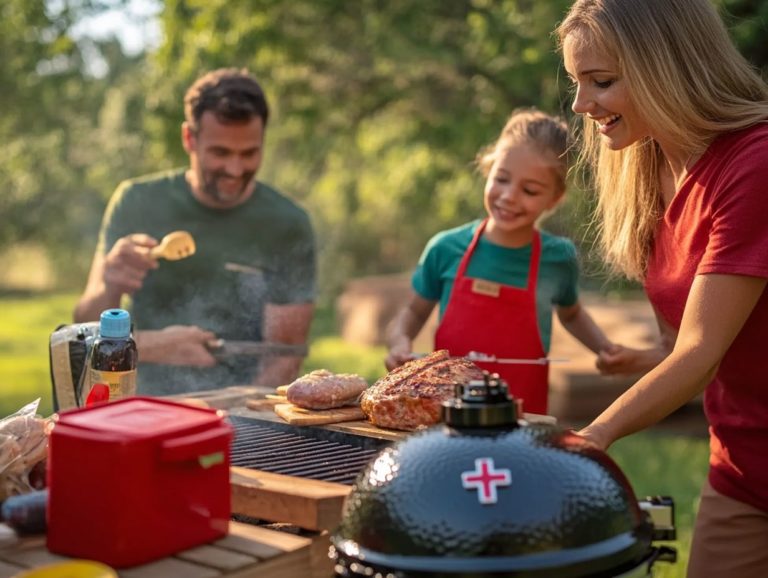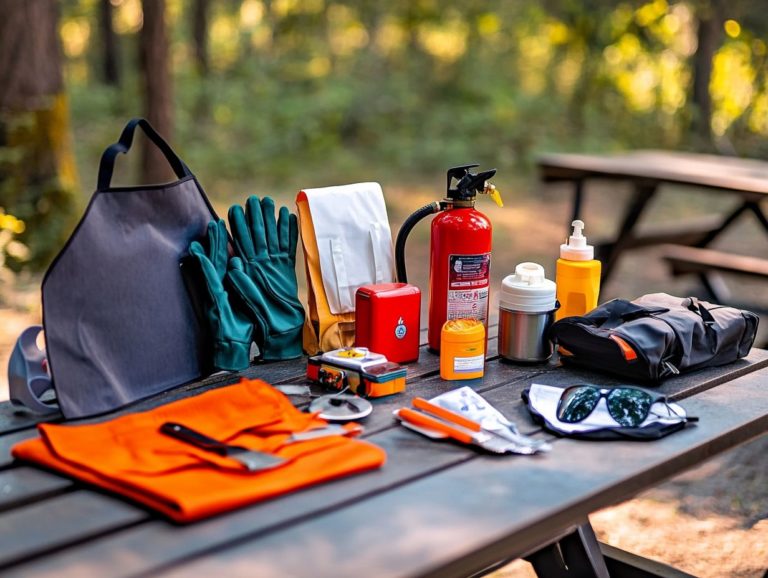Understanding the Risks of Cooking with Charcoal
Charcoal has long been a beloved choice for outdoor cooking, imparting that unmistakable smoky flavor that elevates every meal, especially when grilling vegetables and lean meats.
It s crucial to understand what charcoal is, the various types available, and potential hazards associated with its use, including substances that can lead to cancer. This guide will help you uncover important health risks, safety concerns, and practical strategies for minimizing those risks while you cook, particularly with grilled foods.
You will also find alternative cooking methods, like gas grills and electric grilling, that may offer a safer experience. Additionally, you ll get essential tips on the proper handling and storage of charcoal. Whether you re a seasoned griller or an eager novice, this information will empower you to embrace outdoor cooking with confidence!
Contents
- Key Takeaways:
- What is Charcoal?
- The Dangers of Cooking with Charcoal
- How to Minimize Risks When Cooking with Charcoal
- Alternatives to Cooking with Charcoal
- Proper Handling and Storage of Charcoal
- Frequently Asked Questions
- What are the potential risks of cooking with charcoal?
- How does charcoal produce carbon monoxide?
- What grilling tips and safety precautions should I take when cooking with charcoal?
- Can cooking with charcoal cause food to become contaminated with carcinogens?
- Are there any long-term health effects from cooking with charcoal and processed meats?
- How can I reduce my risks when cooking with charcoal and while using gas grills?
Key Takeaways:
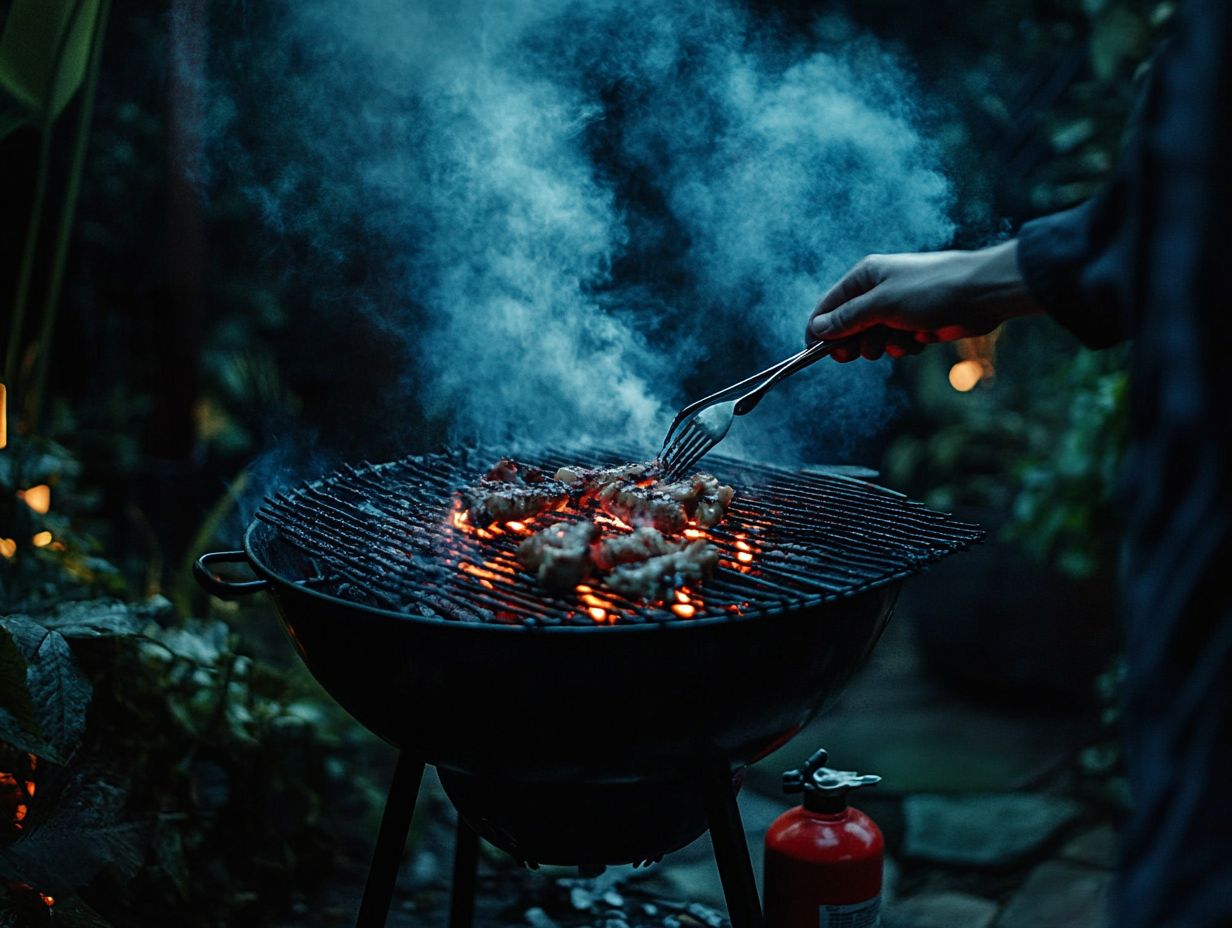
- Understand the potential risks associated with cooking with charcoal, including health concerns and safety hazards.
- Take necessary precautions and follow proper handling techniques when cooking with charcoal.
- Consider alternative cooking methods that may offer similar benefits without the potential dangers of using charcoal.
What is Charcoal?
Charcoal is a material made mostly of carbon, derived from the burning process of organic materials primarily wood. It is a highly sought-after fuel source for grilling, favored by grillmasters for its ability to infuse a distinctive smoky flavor into grilled foods.
In BBQ settings, charcoal shines particularly when cooking red meats and various vegetables. It is available in several forms, including lump charcoal and briquettes, each offering unique properties and burning characteristics that can significantly enhance your grilling experience.
Definition and Types
Charcoal falls into two primary categories: lump charcoal and briquettes, each bringing unique advantages for your grilling adventures.
Lump charcoal consists of pure wood that has been carbonized, resulting in chunks of varying sizes that burn hotter and cleaner than briquettes. You will appreciate its ability to reach high temperatures quickly, making it perfect for searing meats and achieving those coveted grill marks.
On the other hand, briquettes are made from compressed sawdust and additives, offering a uniform shape and size for a consistent burn. They produce steady, moderate heat, making them ideal for long, slow-cooking techniques. While lump charcoal delivers a more intense wood flavor, briquettes are often considered the go-to choice for beginners due to their user-friendly nature and reliable performance.
By understanding these nuances, you can significantly elevate your grilling experience!
The Dangers of Cooking with Charcoal
Cooking with charcoal carries significant health risks that deserve your attention. The formation of carcinogens substances that can lead to cancer such as polycyclic aromatic hydrocarbons (PAHs) and heterocyclic aromatic amines (HAAs) can elevate your cancer risk when consuming charred or grilled foods.
Research from reputable sources like the American Institute for Cancer Research, along with insights from experts such as Mary Beth Terry at Columbia University, underscores the dangers associated with prolonged smoke inhalation and the harmful effects of these chemicals produced at high temperatures, especially during meat grilling.
Now that you know the risks, it s time to start your grilling adventure confidently and safely!
Health Risks and Safety Concerns
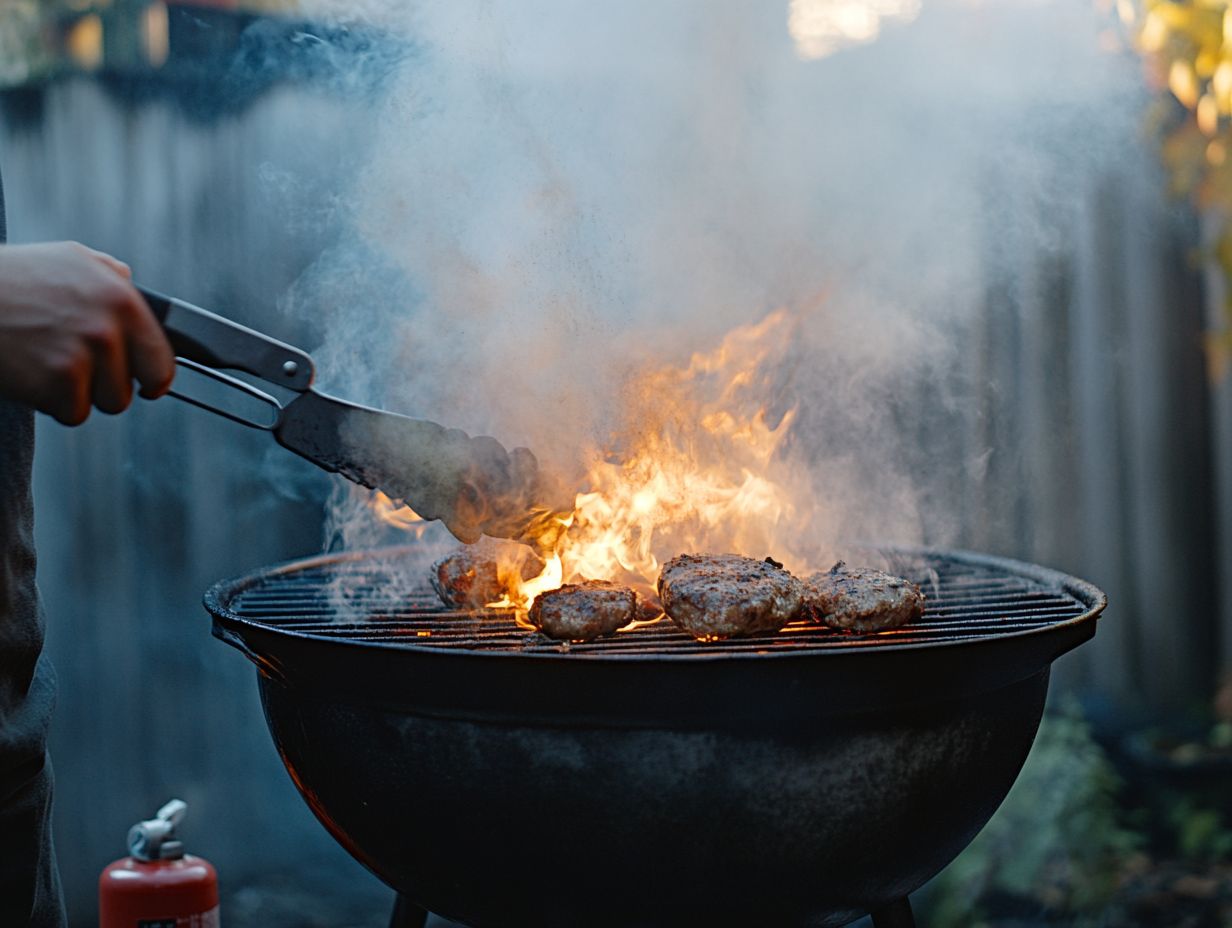
The health risks associated with charcoal grilling should definitely raise some eyebrows, particularly when it comes to the risk of carcinogen exposure. The burning charcoal can generate harmful carcinogens and expose you to smoke inhalation.
These carcinogens, especially polycyclic aromatic hydrocarbons (PAHs) and heterocyclic amines (HAAs) harmful chemicals that can form when meat is cooked at high temperatures have been linked to a heightened incidence of certain cancers. Studies indicate that regular exposure could significantly elevate your risk. Research shows that cooking meat at those high temperatures typical of charcoal grilling leads to the formation of these compounds, making it essential to adopt safe grilling practices.
In fact, data reveals that individuals who frequently grill over charcoal may face a 30% higher risk of developing colorectal cancer. The smoke produced during charcoal grilling brings additional health risks, particularly respiratory issues for those with pre-existing conditions.
To minimize these dangers, consider techniques such as pre-cooking meat and ensuring proper ventilation. Exploring alternatives such as propane or electric grills can also help limit your exposure to harmful substances.
How to Minimize Risks When Cooking with Charcoal
Grilling shouldn’t be stressful. Let’s explore how you can do it safely! To minimize the health risks linked to cooking with charcoal, it’s essential to embrace a few safe grilling practices designed to reduce harmful carcinogen formation while elevating the flavor of your food, especially when grilling vegetables.
Techniques such as marinating your meat, choosing leaner cuts, and maintaining appropriate cooking temperatures can significantly diminish the likelihood of carcinogen production during your grilling sessions, particularly when selecting processed meats or charred food.
You can also include vegetable kebabs and grill a variety of vegetables for a healthier alternative, allowing you to savor the grilling experience without compromise.
Tips for Safe Cooking
Implementing effective grilling tips is crucial for safe cooking, ensuring that your enjoyable grilling experience whether on a gas grill or traditional charcoal doesn’t compromise your health.
To achieve this, pay close attention to proper temperature management, making sure the grill reaches a high enough temperature to eliminate any harmful bacteria. Utilizing indirect heat can further enhance safety, as it reduces the risk of burning while ensuring that everything cooks thoroughly.
It s essential to monitor cooking times based on the thickness and type of meat you re grilling, aiming for the right internal temperatures to confirm doneness for different types of meat. By adopting these precautions, you not only guarantee a delicious meal but also create a healthier grilling environment, making safety a top priority at every barbecue gathering.
Alternatives to Cooking with Charcoal
If you’re worried about the potential health risks linked to charcoal grilling, rest assured that there are several excellent alternatives available. Options like gas grills and electric grilling methods not only deliver great flavor but also prioritize your well-being.
These alternatives allow you to enjoy the grilling experience without the harmful carcinogens, such as polycyclic aromatic hydrocarbons and heterocyclic amines, often produced by high-heat charcoal cooking. They make for a thoughtful choice for anyone who values their health without sacrificing taste.
Why not try one of these alternatives at your next barbecue? Your health will thank you!
Other Cooking Methods and Their Benefits
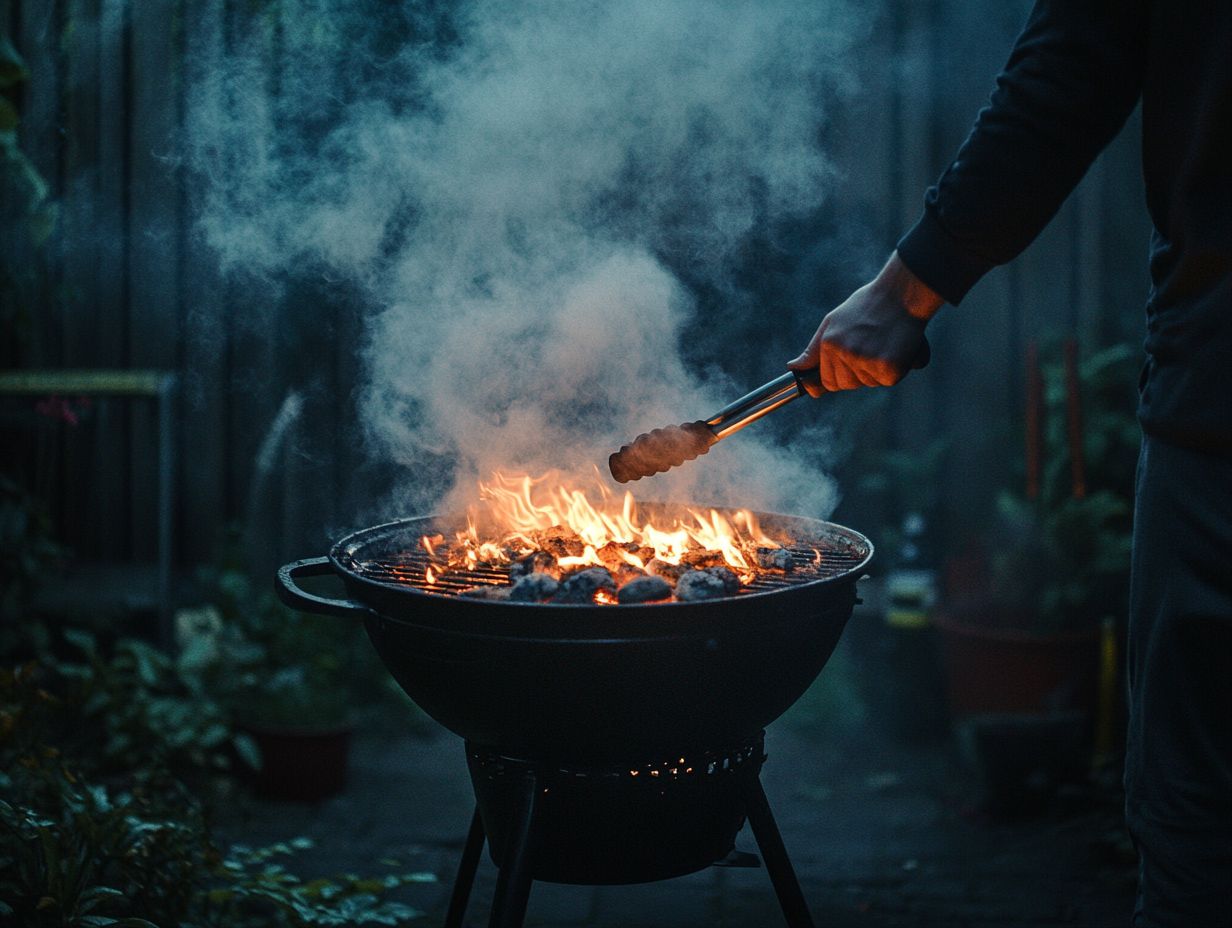
Other cooking methods, like gas grills and electric grilling, offer distinct benefits that can elevate your grilling experience while reducing the health risks tied to traditional charcoal grilling.
By opting for these alternatives, you can enjoy a cleaner cooking environment that minimizes harmful emissions and cancer-causing substances produced by charcoal. Gas grills, for example, provide precise temperature control, allowing you to achieve perfectly seared meats while retaining their natural juices and flavors.
Electric grilling eliminates the need for charcoal altogether, offering a convenient option with minimal setup and cleanup. Both methods promote healthier cooking, often requiring less oil while still delivering that irresistible grilled taste.
This means you can indulge in a delicious meal and feel good about the healthier profile of your favorite barbecued dishes.
Proper Handling and Storage of Charcoal
Proper handling and storage of charcoal is crucial for ensuring safety while preserving its quality for effective grilling. By managing these aspects correctly, you minimize potential hazards linked to improper use.
Precautions and Storage Tips
For grillers like you, taking precautions with charcoal means mastering the art of proper storage to maintain its integrity and create a safe grilling environment.
Storing your charcoal properly keeps it fresh and makes your grilling safer. Ideally, you should store charcoal in a cool, dry area, away from direct sunlight and moisture, as these elements can compromise its quality.
Using airtight containers, such as heavy-duty plastic bins or metal storage canisters, is highly recommended to shield it from humidity and pesky critters. Ensure that the storage area is well-ventilated to prevent the accumulation of flammable gases.
Implement safety measures by clearly labeling your containers and keeping them out of reach of children and pets to further minimize any potential risks.
Frequently Asked Questions
What are the potential risks of cooking with charcoal?
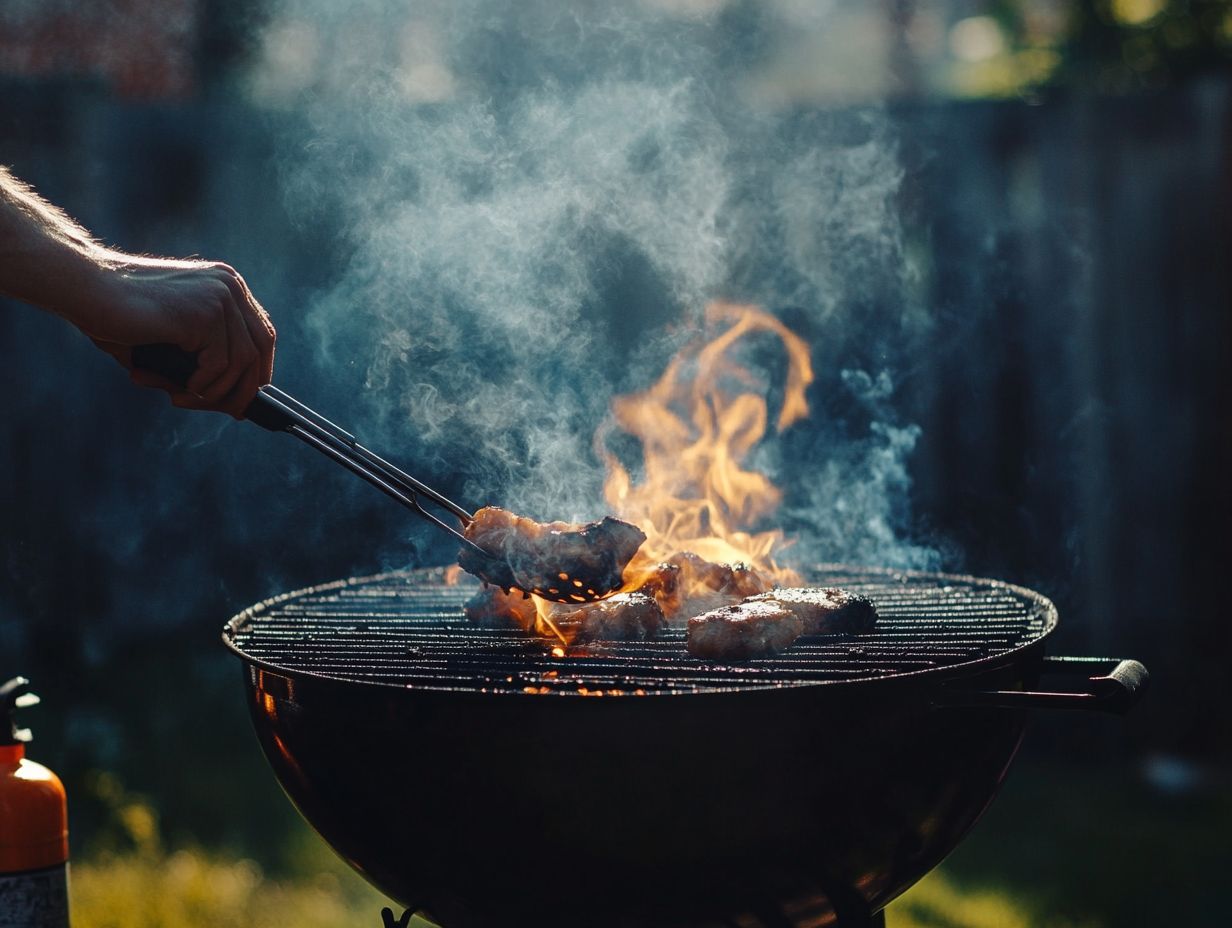
Cooking with charcoal carries a few risks, including carbon monoxide poisoning, burns, and fire hazards, which can all be mitigated with safe grilling practices.
How does charcoal produce carbon monoxide?
Charcoal produces carbon monoxide as it burns, which is a colorless and odorless gas that can be deadly if inhaled in large amounts, especially in confined grilling spaces.
What grilling tips and safety precautions should I take when cooking with charcoal?
To reduce the risks associated with cooking with charcoal, make sure to cook in a well-ventilated area, never leave the grill unattended, and have a fire extinguisher nearby.
Can cooking with charcoal cause food to become contaminated with carcinogens?
Cooking with charcoal can potentially lead to food contamination due to harmful chemicals and pollutants in the charcoal briquettes. Make sure to properly clean and prepare your food before cooking.
Are there any long-term health effects from cooking with charcoal and processed meats?
Prolonged exposure to carbon monoxide and other chemicals from cooking with charcoal can negatively affect your respiratory system and may increase your risk of developing certain respiratory diseases.
How can I reduce my risks when cooking with charcoal and while using gas grills?
Besides taking safety precautions, consider using natural hardwood charcoal instead of briquettes, as they tend to produce less carbon monoxide and contain fewer chemicals.

